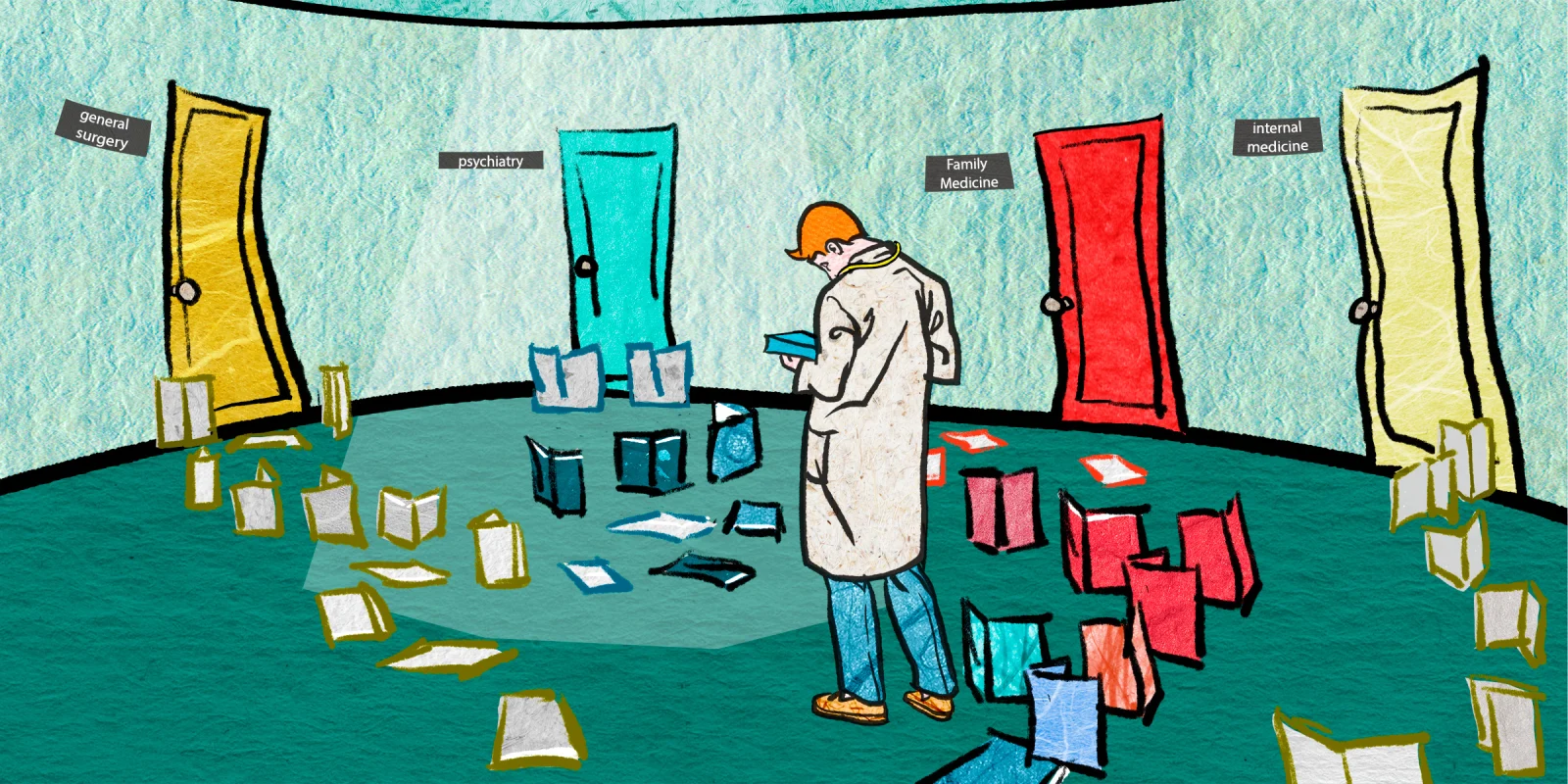Over the last 50 years, medicine has become hyperspecialized. Data from the National Resident Matching Program suggests that more residents are choosing to pursue additional subspecialty training after residency — i.e., fellowship — instead of going straight into practice. In 2015, 88% of internal medicine residents entered specialty training, leaving only 12% practicing general medicine. This trend also applies to surgical residencies. In orthopaedic surgery, a field that is arguably already a surgical subspecialty, more than 90% of residents choose to pursue additional fellowship training. An unintended consequence of this extensive training is a deficit of practicing physicians and a health care system that is overutilized and underproductive, driven by referrals and consultations rather than therapies and treatment plans.
The reasons residents choose to specialize are infinite. For one, there is the belief that more training is related to more prestige. “Top” students are generally encouraged to pursue more prestigious specialties, which are often related to longer hours training but more lucrative salaries and better lifestyles. Further, while the responsibilities of a generalist are burdened with administrative tasks, a career as a specialist is believed to have more of a focus on intellectual thinking and the pursuit of scientific knowledge. Medical training is built on delaying gratification, and it is not difficult to delay gratification for a little bit longer when the rewards are so much higher.
Additionally, the pace of medical education is unable to keep up with the expansive amount of information that is readily available to the general public. Today’s patients often research symptoms extensively prior to coming into a physician’s office. Patients may know more about their specific condition, the causes, and the treatment options than the physician from whom they seek expertise. Recognizing that medical knowledge has exploded over the last decade, residents are now seeking additional training in order to continue offering value to patients.
Finally, medicine has evolved in such a way that physicians practice in silos. A patient’s multiple medical conditions are managed by numerous specialists: A patient with a heart problem has a cardiologist, a patient with a lung problem has a pulmonologist, and a patient with a brain problem has a neurologist. Stepping out of one’s area of expertise and defying another specialist’s recommendation can be seen as “overreaching.” In a sense, the turf war that has been created through the use of silos in medicine has taught residents to pick their organ of choice — or be left coordinating all of the patient’s specialists and their potentially conflicting recommendations in an already convoluted health care system.
Despite the rise of medical specialists, today’s patients have numerous chronic and comorbid conditions. A small number of patients may benefit from a physician who is hyperspecialized, but most patients need a generalist — a physician who can understand the patient as a human being rather than as a body part. Some argue that the biggest loss when it comes to medical specialization is the breakdown of the physician-patient relationship. Medical residents are overeducated but medical care is still lacking, and yet, we as medical residents continue pursuing specialty training because being a specialist is more likely to result in the rewarding, fulfilling, and meaningful careers that we were promised at the very start of medical training.
Do you think hyperspecializing is necessary? Share in the comments.
Thea L. Swenson received a bachelor’s degree in engineering, product design from Stanford University and a medical degree from the University of Colorado. She is currently a resident in physical medicine and rehabilitation at Vanderbilt University and hopes to specialize in sports medicine. Dr. Swenson is a 2022–2023 Doximity Op-Med Fellow.
Illustration by Jennifer Bogartz







